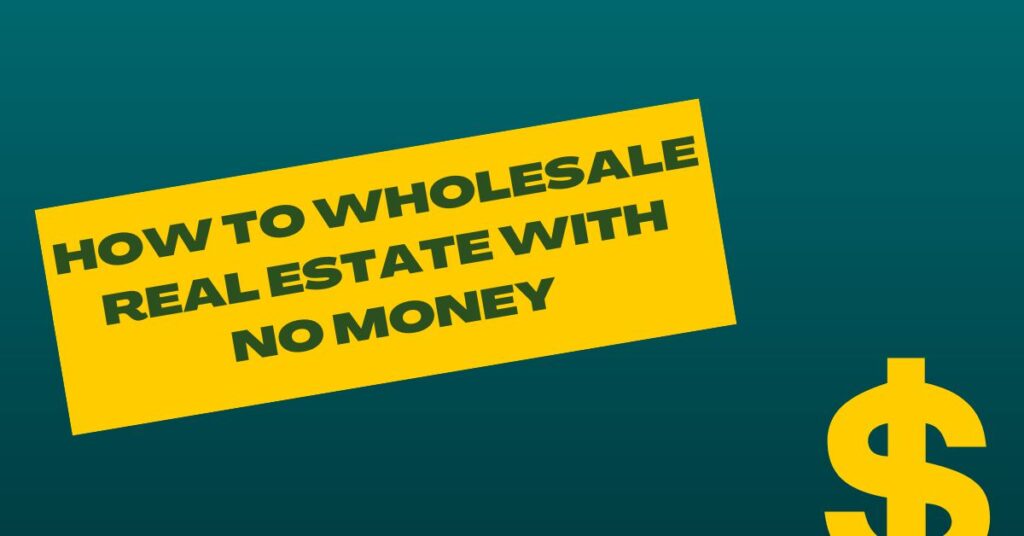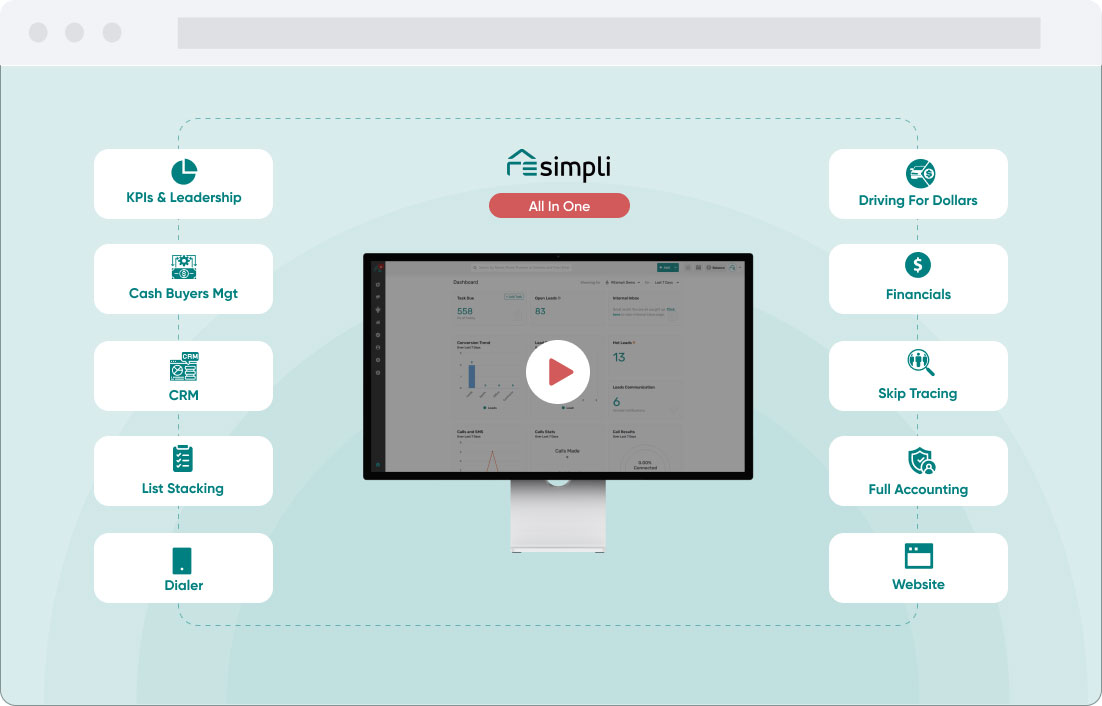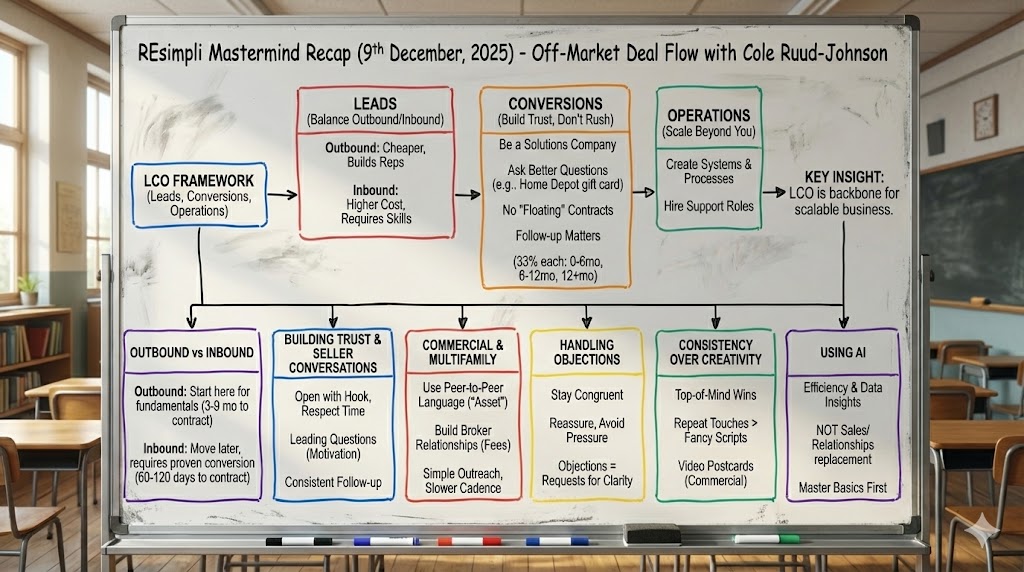
Sure, real estate is expensive. But you don’t actually need to buy properties to enter the world of real estate investing.
As a real estate wholesaler, you never become the owner on record. Which means you don’t need nearly as much money to start wholesaling real estate as you would to start investing in it.
In fact, you can wholesale real estate with no money whatsoever. That said, it helps to know what you’re doing, and avoid common risks. Bear in mind too that real estate wholesaling is a business, and you’ll likely still incur business-related expenses.
What Is Wholesaling Real Estate?
Wholesaling real estate involves flipping a sales contract: finding a buyer for a great deal you scored on a property.
It works like this: you find a bargain deal and put it under contract. You then turn around and find a buyer to assume your contract — for a finder’s fee.
For example, you find a distressed seller who’s willing to accept $150,000 for a property worth $200,000, if you can close within three weeks. After putting the property under contract, you email your buyer’s list to offer the property for $165,000. Your buyer closes on the property and scores a $35,000 discount, your seller gets a quick sale, and you get $15,000 for your trouble.
If it sounds too good to be true, that’s because it’s actually hard work. The work lies in creating a wholesaling business, not in the mechanics of any one deal.
Specifically, it takes time and usually money to create a system for scoring great deals, and to build a network of buyers.
How Much Do You Need to Wholesale Real Estate?
For any given real estate wholesale transaction, you don’t need much money. Some wholesalers manage to conduct transactions with no money at all.
You need funds to cover the earnest money deposit (EMD), if the seller requires one. Beyond that, there’s always the possibility of the buyer backing out, in which case some wholesalers decide to buy the property themselves. That comes with all the normal expenses: a down payment, closing costs, and possibly cash reserves and repair costs.
If you conduct a double closing, then you do need all the funds to close on the property yourself, including the down payment and closing costs. More on that momentarily.
But as mentioned above, it usually takes money to build out a wholesaling business. For instance, it costs money to send out direct mail campaigns to prospective sellers, or SMS text message campaigns.
It also takes time and money to build out a buyer’s list. As you scale, you’ll likely want to invest in a real estate CRM system (like, say, REsimpli!).
So how do you find off-market deals with little cost to yourself?
How to Find Deals as a Wholesaler with No Money
If you don’t want to spend a fortune on direct mail or long-term SEO campaigns for a website, you have other options.
Try these options to score great off-market deals without breaking the bank.
Partner with a Pro
Everyone has to start somewhere, including new real estate wholesalers. You can skip some of the mistakes along the way by partnering with a veteran wholesaler on your first few deals.
They already have marketing plans in place to bring in purchase leads. You get to learn how those systems run, and how to automate them as much as possible.
Not only will you learn the ropes, but senior partners may also put up any required EMD or other costs. Your contribution could come in the form of labor.
As an added bonus, they’ll likely share their legal forms with you, and show you how they organize their wholesaling business with a real estate CRM. You can skip to the front of that line without having to figure it all out by yourself.
Driving for Dollars
An oldie but goodie, driving for dollars involves physically driving around your target submarkets and looking for under-loved homes.
That includes abandoned properties that simply cost their owners money. And it also includes properties with plenty of deferred maintenance, indicating a lack of interest on the part of the owner.
You can reach out to these owners through REsimpli’s direct mail or SMS features of course. Or you can knock on the door or leave a note, or try skip tracing the owner to call or email them. Read more about how to automate driving for dollars with REsimpli.
Build a Network of Bird Dogs
A “bird dog” is a person who keeps an eye out for motivated sellers for you, and lets you know when they hear of one. For a finder’s fee, of course.
But the beauty of working with bird dogs is that you only have to pay them when a deal actually closes. In other words, you can pay them only when and if you yourself get paid.
For example, you could get cozy with local baristas, bartenders, hair stylists, postal workers, and other people in your target neighborhood. Tell them you’ll happily pay them $500 for a tipoff about a motivated seller, and stay in regular contact with them.
When they hear about a couple getting divorced, or in financial trouble, they shoot you a text. You can then reach out to the property owner to see if they’re interested in a quick sale.
You find off-market deals, your bird dog gets a finder’s fee (after you settle), the seller gets a quick sale, and everyone sings kumbaya.
Network with Divorce Attorneys
That network of bird dogs could well include divorce attorneys. After all, they work with distressed property owners all day every day.
Just beware that you may have to pay them more than the mailman. Alternatively, they may be more interested in other favors. For example, if you’re also building a “We Buy Houses” website and building links for it for SEO, you could offer to get links for your attorney friend. Or they might enjoy getting out of the house for drinks every other Wednesday night.
Regardless, build relationships with them and you could find yourself with a steady stream of leads.
Strategically Place Bandit Signs
Bandit signs are another low-cost guerilla marketing strategy. You buy a bulk order of “We Buy Ugly Houses” signs and strategically place them throughout your target neighborhoods.
Before spending a dime though, note that some cities outlaw them nowadays. Double-check your local laws so you don’t get fined for illegal signage.
Social Media Marketing
Local social media groups and forums can offer a wealth of leads for off-market properties.
Start building a presence on Nextdoor, and on local Facebook groups. Set up keyword alerts for words like foreclosure, divorce, lien, and the like.
Just remember to remain authentic and compassionate in your interactions, so local residents don’t see you as a scavenger.
Craigslist
Wholesalers can also sometimes find distressed sellers on Craigslist.
For whatever reason, not all sellers want to hire a real estate agent. Some just want to list their property for-sale-by-owner (FSBO) and call it a day.
Some sellers may have unrealistic expectations about their home’s pricing. But others are open to negotiation — especially if you can offer a fast cash closing.
Facebook Marketplace
The same logic applies to Facebook Marketplace. Some sellers would simply rather post their home for sale online than sign an exclusive right to sell with a Realtor.
Keep an eye on these FSBO platforms, and reach out to sellers to get a sense for how motivated they are to sell fast at flexible prices.
Consider Classified Ads
Just yesterday I interviewed a real estate investor who finds most of her leads by posting classified ads in local publications.
She explained there was little or no competition from other real estate investors, and yet her phone rings consistently. Some property owners just don’t know they want to sell until someone asks them, even in the form of a classified ad.
Granted, classified ads cost money. But in some publications they’re downright cheap, and you can always experiment by running them for a month and then analyzing the results.
How to Put Down No EMD for Wholesale Deals
It is absolutely possible to wholesale real estate deals without any transaction-related costs.
As you build out your strategy and systems for wholesaling real estate, try the following tactics to minimize your money commitment.
Negotiate for No or Low EMD
When you negotiate a purchase price with the seller, include the earnest money deposit in those negotiations. Offer them a contract without one.
You can also approach it as an option-to-purchase agreement, not a contract of sale.
Given that the EMD potentially makes up your only cost commitment for arranging the wholesale deal, this by itself could let you complete it with none of your own money involved.
Structure the Contract with a Penalty-Free Exit
Likewise, leave yourself plenty of “outs” in the contract.
If the seller does demand an EMD, make sure you’ll get it back if you pull out of the deal within a certain time frame. That becomes your deadline to confirm a buyer — and to collect at least as much EMD from them, to cover your loss if they back out on you.
Sprinkle as many contingencies into the contract as you can, so that if your buyer falls through you get your EMD back.
Do a Single Settlement
As touched on above, a double closing requires you to actually take title to the property. And actually get a loan, and cough up a down payment, and pay for closing costs.
Don’t get me wrong, a double closing has its advantages. You keep the buyer and seller completely separate, and can keep your wholesaling fee private. But if you want to wholesale real estate with no money, stick with a single closing with your fee simply listed on the settlement statement.
Lines of Credit
If you do have to come up with an EMD or any other costs, that doesn’t mean you need to pay for them with your own cash.
Consider opening business lines of credit. For example, Fund&Grow specializes in helping real estate investors and wholesalers open unsecured business credit lines and cards. You can also approach local banks and credit unions to open lines of credit.
Because real estate wholesale deals turn over quickly, you might even repay your line of credit before any interest becomes due.
Credit Cards
The same logic applies to credit cards. You can take a cash advance to cover an EMD or other costs.
Or better yet, use Plastiq to pull cash from your card with a lower cost than most cash advance fees.
Gator Lenders
Believe it or not, some lenders specialize in EMD loans to real estate wholesalers.
Sometimes called “gator” lenders, they often charge a fixed fee and require repayment within a short time frame. As a percentage, these loans are costly, but they also make it possible to wholesales properties with none of your own money.
Friends & Family
Your own network can provide the most flexible financing of all.
By borrowing private loans from friends and family, you can pay reasonable interest and low — or even no — fees. But before you run around hitting up your loved ones for money, just beware that you risk your personal relationships when you borrow. Only borrow from friends and family if you know you can repay them, even if the deal goes sideways on you.
FAQs About Wholesaling Real Estate with No Money
Still have questions about wholesaling real estate with none of your own money?
It’s a confusing business strategy for novices to wrap their heads around, given that the wholesaler is a third party within the sales transaction. I hear these questions most frequently from new real estate investors and wholesalers.
How do real estate wholesalers make money?
Real estate wholesalers earn money by assigning a contract of sale to a real estate investor. They “flip” the contract, earning the difference between the sales price and the buyer’s purchase price. Some wholesalers refer to this as their assignment fee.
This only works if the wholesaler scores such an outstanding deal from the seller that the end buyer still gets a discount from the market value — even after the wholesaler’s fee.
How much can real estate wholesalers earn?
Successful wholesalers can earn $5,000 – $25,000 or more as an assignment fee. Some charge a fixed fee, others charge a percentage (often 5-10%). But ultimately, wholesalers can and should charge whatever buyers are willing to pay.
If you put a $300,000 property under contract for $200,000, you could potentially wholesale it to a buyer for $275,000. They still get a $25,000 discount from the market value, after all. Ultimately, how much you earn depends on your ability to buy properties at a deep discount, and your ability to find buyers willing to close quickly.
Do you need a real estate license to wholesale properties?
In most states you do not need a real estate license to wholesale properties. Even so, you should check your state’s rules and regulations before wholesaling real estate.
What are the risks and downsides to wholesaling real estate?
If you put a property under contract and fail to find a buyer, you face a choice. Do you withdraw from the contract, and possibly surrender your earnest money deposit? Or do you purchase the property yourself?
Use the strategies outlined above to give yourself contingencies and exit strategies to cancel the contract without losing an EMD.
Real estate wholesalers also succeed or fail based on the trust of their buyers. You want to establish repeat buyers who know you consistently deliver great deals. If you breach that trust in any way, or establish a reputation for only looking after yourself, expect difficulty finding buyers for your deals.
Perhaps the greatest risk is simply that you invest enormous effort into your wholesaling business, but struggle to score great deals. It’s not easy buying properties at a huge discount. If it were, everyone and their mother would do it.
Don’t expect real estate wholesaling to be quick or easy. It’s a business, and no business is quick or easy.
What happens if I can’t find a buyer for a wholesale deal?
You can buy the property yourself, and wholetail it. Or you could renovate and flip the property yourself. Or renovate and refinance it to keep as a rental property.
Many of the most successful real estate wholesalers do sometimes buy properties themselves. But, of course, that requires capital.
Alternatively, you can withdraw from your contract of sale with the seller. Just make sure you protect yourself in advance with a contract that lets you do so with no financial penalty.
Final Thoughts
All too often, people get into real estate wholesaling because they think it’s a quick way to make a buck.
Yes, most individual transactions are quick and relatively labor-free. But that ignores the massive effort required to build the business in the first place.
It takes time and money to find off-market real estate deals. You might send out 300 postcards for every property that you successfully put under contract.
Likewise, it takes months or even years of networking to build a reliable buyer’s list. That networking might include attending real estate investor associations (REIAs), endless engagement on social media, SEO, attending conferences, or countless other efforts.
If you want to succeed at real estate wholesaling, prepare yourself to build out an entire business. A business that requires time, labor, and yes, money on your part.
Learn more about building a successful wholesaling business in our complete guide to wholesale real estate.


